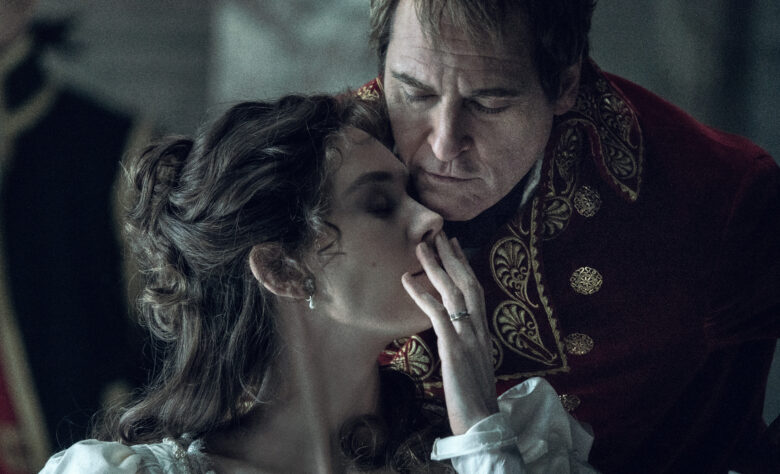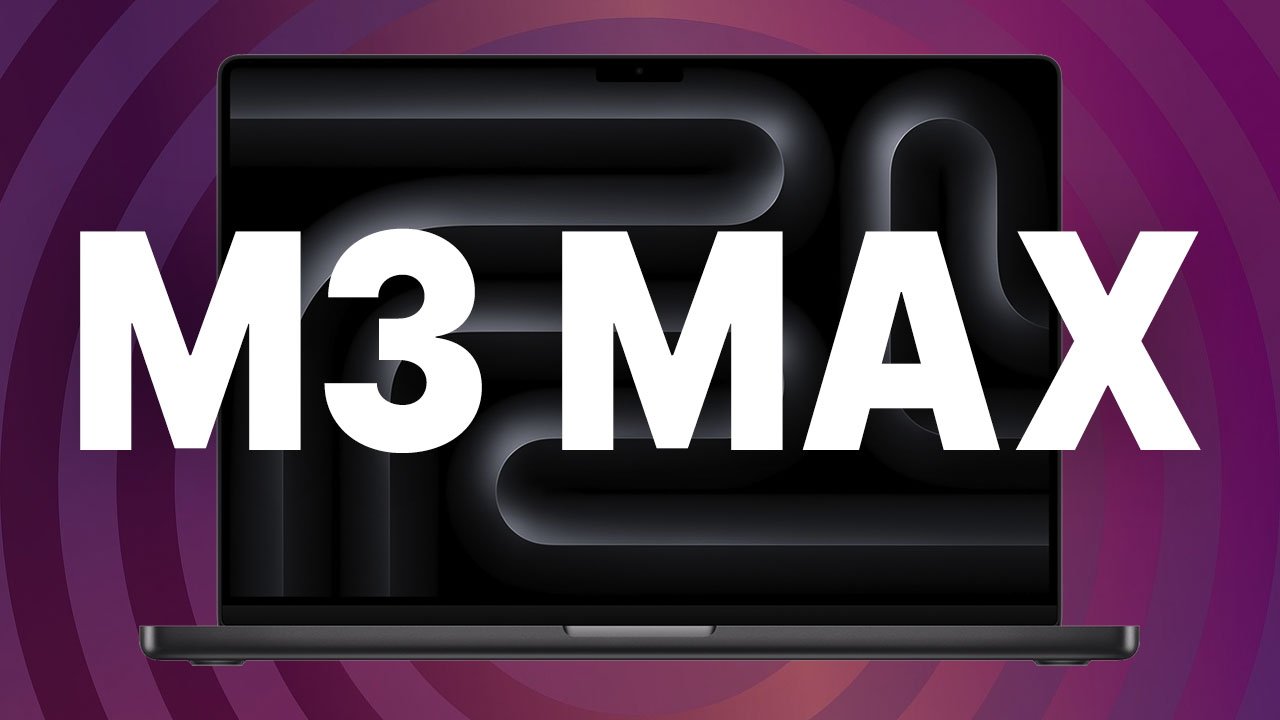![Napoleon stands tall as one of Ridley Scott’s finest films [Apple TV+ review] ★★★★☆ Napoleon stands tall as one of Ridley Scott’s finest films [Apple TV+ review] ★★★★☆](https://www.cultofmac.com/wp-content/uploads/2023/10/Napoleon_Photo_0108.jpg)

With Martin Scorsese’s heartbreaking Killers of the Flower Moon garnering headlines and climbing toward recouping its budget, here comes Ridley Scott’s Napoleon. The Apple Original biopic about the diminutive French emperor — in theaters now, and coming to Apple’s streaming service at some point in the future — proves Apple TV+ is a safe bet for good movies.
Coupling unfliniching violence with a keen sense of the absurd, it’s one of Scott’s finest films.
Napoleon review
When we meet Napoleon Bonaparte (played by Joaquin Phoenix), described in the opening text as a humble Corsican officer looking for a way to prove his bona fides, he’s seen France fall to revolution and knows that the favor of the people is a fickle thing. This will haunt him as he strives not merely to stay a step ahead of the rabble’s approval but also to please the few people he brings into his confidence, like his wife Josephine (Vanessa Kirby).
Napoleon hatches a plan that will play like gangbusters to his government and its top military minds: He wants to get the English out of France and restore a French order to life in the country.
To get the ball rolling, he proposes a radical strategy in the port city of Toulon. They will seize a British fort and turn England’s own guns on its own ships. The plan proves a success. (It also gives Napoleon his first taste of the terror of command when his horse absorbs a cannonball that nearly blows him to pieces.)
Shall we vote on it?

Photo: Apple TV+
Later, Napoleon became a tool for Republican forces trying to clamp down on royalist violence brewing in major cities. He laid waste to his enemies and then not so quietly installed himself as the leader of the party he commanded. During this period he met Josephine, the widow of a revolutionary general who had been executed during the Reign of Terror.
With the French Revolution winding down and its chief spokesman Robespierre messily put in the ground (a scene depicted here in all its gory chaos), Josephine finally feels free enough to begin attending galas and the like, where she caught the obsessive Napoleon’s eye.
Though she warns him when he comes courting that her wandering eye is to be taken for granted, Napoleon’s jealousy and grief at her affairs is still a public spectacle on a par with his infamous victories on the battlefield. Of course, every man has his limits … and every tactician can be outsmarted.
You cannot stop me, I spend 30,000 men a month
It’s not at all difficult to see why 85-year-old director Ridley Scott, practically an oligarch when you tally up his media empire and other business concerns — including a winery in France that plays host to a museum of his movies — saw something of himself in Napoleon.
Now, he hasn’t exactly come out and said he made the movie for this or that reason. (Scholars of Scott … Scottlars? … will note the director’s affinity and admiration for Stanley Kubrick, whose films provided a rough template for a goodly sum of Scott’s, and whose own long-planned and ultimately never realized dream project was a Bonaparte biopic.)
But let’s face it. How many other people can a man who has what Scott has relate to? He’s been living his dreams for decades now, able to make damn near anything he pleases, with an army of technicians, extras, loyal artist collaborators and his own large extended family at his right arm at all times. He could have retired six times over by now but he cannot, as Napoleon at Waterloo, stop trying to create and conquer new worlds.
Classic films made with cutting-edge tech

Photo: Apple TV+
I’m of a mind that this is a good thing, as I have been a lifelong fan not just of Scott’s work but what it’s led the way toward. His old-school epics embrace state-of-the-art technology, and so he’s proven that miracles of modern cinematic planning and plotting are possible.
Not to smear James Cameron, whose own career got a shot in the arm when in 1986 he made a sequel to Scott’s landmark sci-fi film Alien, but the archetypes and dialogue of both of his Avatar movies fall leagues behind his visual imagination.
Scott, when he decided he was going to revisit the world of Alien, gave us Prometheus and Alien: Covenant, two of the most singularly bleak and haunting works of modern pulp fiction. His pragmatic view of the universe, his unromantic view of his own place in culture — these are the things that keep Scott young.
Ridley Scott’s evolution as a director
Scott’s first feature was the staggering The Duellists, a Kubrickian study of Napoleonic officers locked in spiritual combat. And fittingly, Scott’s latest works in what we can call a classic vein — not simply in cinematic terms but in terms of his own output — are his most revelatory.
For more than a decade, his films followed very predictable character beats and story ideas. Whether it was White Squall, Black Hawk Down, G.I. Jane, Gladiator, American Gangster, Robin Hood or Body of Lies, there wasn’t much moral gray area in the way he treated his subjects. The films had clear winners and losers, heroes and villains, morals and sins.
Then Scott discovered digital photography, and his beloved brother Tony — a tremendous and idiosyncratic artist himself — passed away. So Scott decided he was going to be someone altogether more Kubrickian.
Black humor started bubbling over onto his stories of corrupted innocence and turning them cruel. Fascist supermen started getting away with murder. Empires were allowed to fall or, worse, stick around and grow more twisted. Scott’s work became more most interesting than ever.
Napoleon ranks among Ridley Scott’s finest films
2021’s The Last Duel and Napoleon are the best films in this new mode. They look at times of historical strife and find little but goblins at the wheels of power, where both great armies and sites of sexual trauma are concerned.
In the former film, a woman (Jodie Comer) is caught in a games of egos when she comes forward to say she’s been raped by a rival of her husband. The character hopes for something like justice or at least recognition of the toll that the men in her life have taken on her, both family and strangers alike. By the end of The Last Duel, we lose sight of what was at stake to begin with, in favor of the barbarism of two men anxious to prove something incidental in full view of an adoring crowd of bloodthirsty and likeminded bystanders, by which our hero’s life has been subsumed.
The horrid implication of the crime is that even an aristocrat cannot find satisfaction for a grievous ill with the blood of her attacker staining the mud of an arena. What chance does any woman, high or low born, have?
Wars and other nightmares
Napoleon dives headfirst back into these waters by showing that even Josephine, Empress of France, couldn’t be guaranteed a life that wouldn’t keep her awake at night wondering if she’d be murdered or left to die a pauper. Her life, the movie argues, hinged on her ability to provide Napoleon with an heir, which she proved unable to do, despite her many lovers and Napoleon’s own insistent schedule whenever he was not at war.
If you’re beginning to get the sense that this is not a typical kind of film from the director of Gladiator, you may now also see why it is so peculiarly successful.
The battle sequences — dazzlingly staged, of course — become mirrors of Napoleon’s doggedness in his marriage. When he has the world by the tail, he can handily win battles in mere minutes of screentime. When he begins to worry for the sanctity and prosperity of his marriage, he becomes obsessive in his conquests and the bloodshed he inflicts is shown in painstaking detail. And when it becomes clear he will never see life spring from Josephine’s womb, he possesses the dead-eyed conviction of a man lost to himself and to the world.
Violence and black humor
Scott handles the warped domestic scenes and the grim games of royal politics with a jaundiced eye and a flare for absurdity that are becoming his hallmarks in the winter of his life. We’ve always known he can film violence with shocking certainty. Indeed, he set the tone for it when a chestburster exploded out of John Hurt’s torso in Alien.
It has then been a wonderful surprise to see Scott become a man who can stare not simply at the demonstrative horrors of war but at the unyielding demands of married life between strangers, and not blink when he finds the same misery. Indeed, he locates a queasy, gnawing comedy, thanks in no small part to a wonderfully unselfconscious performance by Phoenix as a man uncomfortable in the most considered skin in Europe.
Were Napoleon the work of a younger man, it would seem the start of a fascinating career. Coming from Ridley Scott, who stood at the crossroads of American entertainment and European high art for 60 years, it’s a magnificent curveball — and a reminder that he still has sights to show us. He still has stories to tell.
★★★★☆
Watch Napoleon on Apple TV+
You can now watch Napoleon in theaters. It will come to Apple TV+ at some point in the future.
Rated: R
Watch on: Apple TV+
Scout Tafoya is a film and TV critic, director and creator of the long-running video essay series The Unloved for RogerEbert.com. He has written for The Village Voice, Film Comment, The Los Angeles Review of Books and Nylon Magazine. He is the author of Cinemaphagy: On the Psychedelic Classical Form of Tobe Hooper and But God Made Him A Poet: Watching John Ford in the 21st Century, the director of 25 feature films, and the director and editor of more than 300 video essays, which can be found at Patreon.com/honorszombie.







